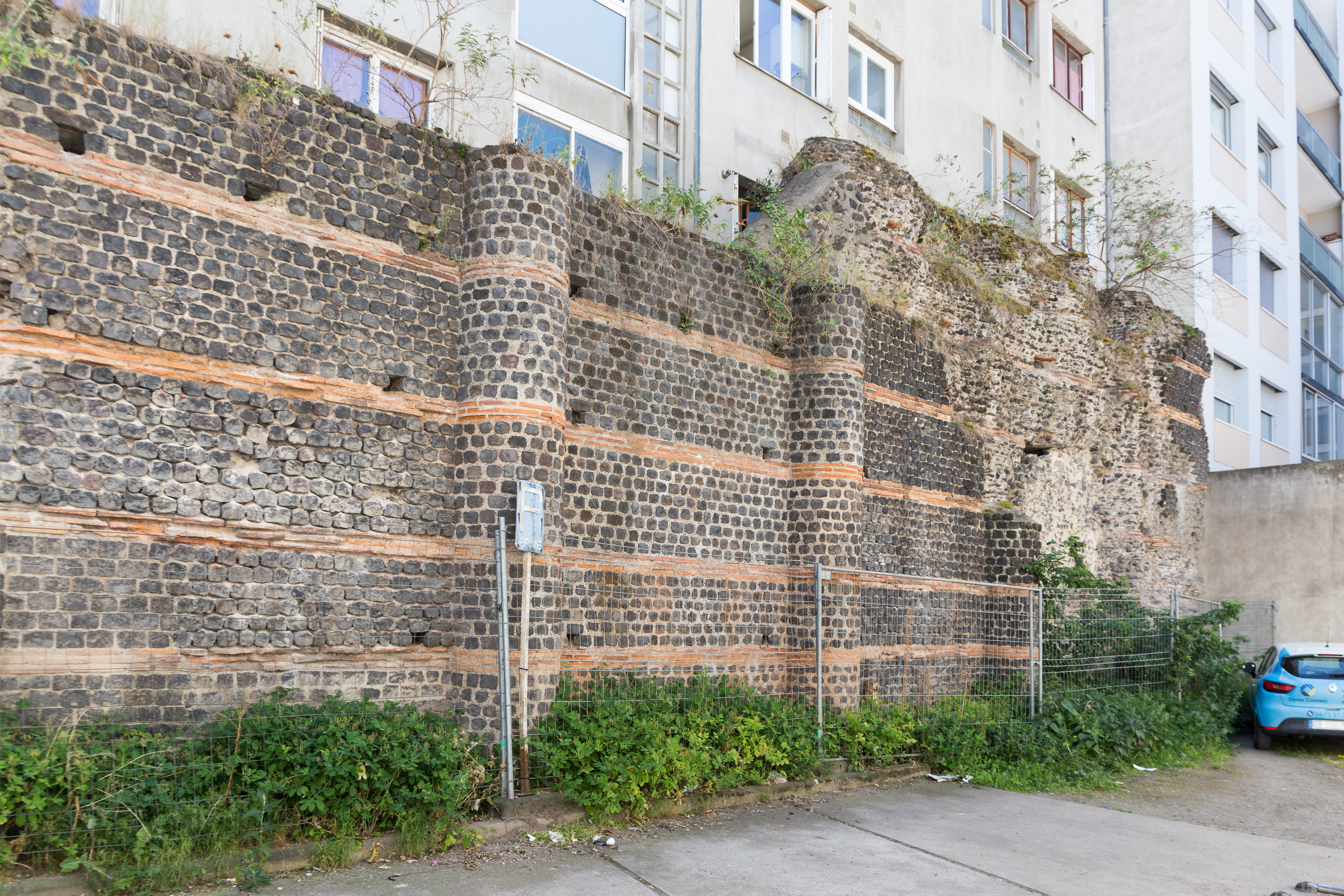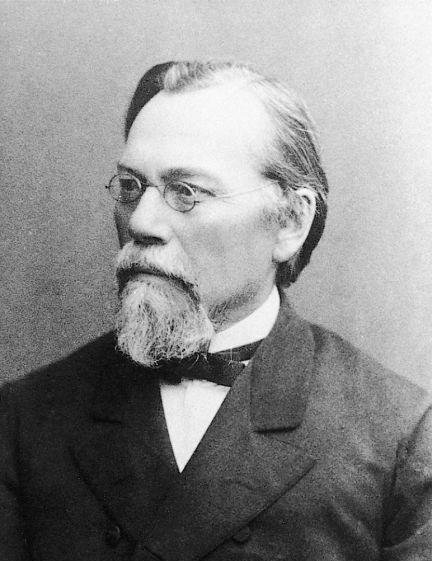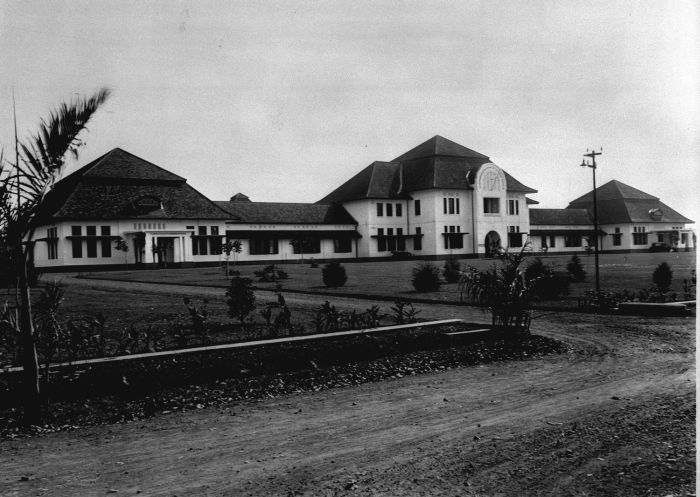|
Marie Laurent
Marie Pasteur, née Laurent (15 January 1826 in Clermont-Ferrand, France – 28 September 1910 in Paris), was the scientific assistant and co-worker of her husband, the famous French chemist and bacteriologist Louis Pasteur. Life Marie Pasteur was one of the daughters of the Rector of the Strasbourg Academy. She married in Strasbourg 29 May 1849, aged 23, to Louis Pasteur, aged 26. Marie worked as a secretary and science writer to her spouse and served as his amanuensis. She was his active assistant in his scientific experiments. She worked with him on expanding his first researches, around 1848, on the remarks previously made by Mitscherlich on the different optical properties concerning polarized light of tartaric acid when it came from natural wines, wine lees and when it was synthesized in a laboratory. The students and colleagues of Louis Pasteur acknowledged the importance she had for him in his work as his assistant. She grew the silkworms he needed for his experiment wit ... [...More Info...] [...Related Items...] OR: [Wikipedia] [Google] [Baidu] |
Clermont-Ferrand
Clermont-Ferrand (, , ; or simply ; ) is a city and Communes of France, commune of France, in the Auvergne-Rhône-Alpes regions of France, region, with a population of 147,284 (2020). Its metropolitan area () had 504,157 inhabitants at the 2018 census.Comparateur de territoire: Aire d'attraction des villes 2020 de Clermont-Ferrand (022), Unité urbaine 2020 de Clermont-Ferrand (63701), Commune de Clermont-Ferrand (63113) INSEE It is the Prefectures in France, prefecture (capital) of the Puy-de-Dôme departments of France, département. Olivier Bianchi is its current List of mayors of Clermont-Ferrand, mayor. Clermont-Ferrand sits on the plai ... [...More Info...] [...Related Items...] OR: [Wikipedia] [Google] [Baidu] |
Arbois
Arbois () is a Commune in France, commune in the Jura (département), Jura Departments of France, department, in the Bourgogne-Franche-Comté Regions of France, region, eastern France. The river Cuisance passes through the town, which centres on an arcaded central square where one can sample the local wines. The commune has been awarded two flowers by the National Council of Towns and Villages in Bloom in the competition of Cities and Villages in Bloom. Geography Arbois is located some 40 km southwest of Besançon and 30 km southeast of Dole, Jura, Dole. With a typical ''Revermont'' landscape, the plain is mainly used for cropping of cereals on medium-sized plots of land. The lower slopes consist mainly of meadows surrounded by small hedges for dairy farming, with some vineyards located in the same area. The rest of the hills is occupied by small vineyards with a few scattered meadows. The top of the hills and the plateau are heavily forested. Communication and tra ... [...More Info...] [...Related Items...] OR: [Wikipedia] [Google] [Baidu] |
Amanuenses
An amanuensis ( ) ( ) or scribe is a person employed to write or type what another dictates or to copy what has been written by another. It may also be a person who signs a document on behalf of another under the latter's authority. In some academic contexts, an amanuensis can assist an injured or disabled person in taking written examinations. Eric Fenby acted as such in assisting the blind and paralysed composer Frederick Delius in writing down the notes he dictated. History In ancient Rome, an amanuensis (Latin ''āmanuēnsis'', “secretary”, from ''ab-'', “from” + ''manus'', “hand”) was a slave or freedperson who provided literary and secretarial services such as taking dictation and perhaps assisting in composition. ''Amanuenses'' were typically Greek, might be either male or female, and were among the higher-status slaves in ancient Rome who were considered to add value to their masters' lives rather than serving as mere instruments of production. Literary ... [...More Info...] [...Related Items...] OR: [Wikipedia] [Google] [Baidu] |
French Roman Catholics
French may refer to: * Something of, from, or related to France ** French language, which originated in France ** French people, a nation and ethnic group ** French cuisine, cooking traditions and practices Arts and media * The French (band), a British rock band * "French" (episode), a live-action episode of ''The Super Mario Bros. Super Show!'' * ''Française'' (film), a 2008 film * French Stewart (born 1964), American actor Other uses * French (surname), a surname (including a list of people with the name) * French (tunic), a type of military jacket or tunic * French's, an American brand of mustard condiment * French (catheter scale), a unit of measurement * French Defence, a chess opening * French kiss, a type of kiss See also * France (other) * Franch, a surname * French Revolution (other) * French River (other), several rivers and other places * Frenching (other) Frenching may refer to: * Frenching (automobile), recessing or moul ... [...More Info...] [...Related Items...] OR: [Wikipedia] [Google] [Baidu] |
1910 Deaths
Events January * January 6 – Abé people in the French West Africa colony of Côte d'Ivoire rise against the colonial administration; the rebellion is brutally suppressed by the military. * January 8 – By the Treaty of Punakha, the Himalayan kingdom of Bhutan becomes a protectorate of the British Empire. * January 11 – Charcot Island is discovered by the Antarctic expedition led by French explorer Jean-Baptiste Charcot on the ship '' Pourquoi Pas?'' Charcot returns from his expedition on February 11. * January 12 – Great January Comet of 1910 first observed ( perihelion: January 17). * January 15 – Amidst the constitutional crisis caused by the House of Lords rejecting the People's Budget the January 1910 United Kingdom general election is held resulting in a hung parliament with neither Liberals nor Conservatives gaining a majority. * January 21 – The Great Flood of Paris begins when the Seine overflows its banks. * January 22 – Completion of cons ... [...More Info...] [...Related Items...] OR: [Wikipedia] [Google] [Baidu] |
1826 Births
Events January–March * January 15 – The French newspaper ''Le Figaro'' begins publication in Paris, initially as a satirical weekly. * January 17 – The Ballantyne printing business in Edinburgh (Scotland) crashes, ruining novelist Sir Walter Scott as a principal investor. He undertakes to repay his creditors from his writings. His publisher, Archibald Constable, also fails. * January 18 – In India, the Siege of Bharatpur ends in British victory as Lord Combermere and Michael Childers defeat the princely state of Bharatpur, now part of the Indian state of Rajasthan. * January 30 – The Menai Suspension Bridge, built by engineer Thomas Telford as the first major suspension bridge in world history, is opened between the island of Anglesey and the mainland of Wales. * February 6 – James Fenimore Cooper's novel ''The Last of the Mohicans'' is first printed, by a publisher in Philadelphia. * February 8 – Unitarian Bernardino Rivadavia becomes the first Pr ... [...More Info...] [...Related Items...] OR: [Wikipedia] [Google] [Baidu] |
Joy Dorothy Harvey
Joy Dorothy Harvey (born 1934) is an American historian of science. Life Harvey gained a PhD from Harvard University in 1983. She has been an associate editor of the Darwin Correspondence Project, and written a biography of Clémence Royer, Darwin's first French translator. She and Marilyn Bailey Ogilvie collaborated on the multi-volume ''Biographical Dictionary of Women in Science''. Pnina G. Abir-AmThe Making of a Historian of Women in Science: Marilyn Bailey Ogilvie at 80! ''History of Science Society Newsletter'', January 2018. Works * 'Medicine and politics: Dr. Mary Putnam Jacobi and the Paris Commune', ''Dialectical anthropology'', Vol. 15 (1990), p. 107–117 l'autre côté du miroir (The Other Side of the Mirror): French Neurophysiology and English Interpretations in Claude Debru, Jean Gayon and Jean-Francois Picard, eds., ''Les sciences biologiques et médicales en France, 1920-1950'', 1994. * 'Charles Darwins "Selective strategies": die französische versus die en ... [...More Info...] [...Related Items...] OR: [Wikipedia] [Google] [Baidu] |
Marilyn Bailey Ogilvie
Marilyn Bailey Ogilvie (born March 22, 1936) is an American historian of science known especially for her work on the history of women in science. She taught at Oklahoma Baptist University before becoming curator of the History of Science Collections and professor at the University of Oklahoma. She is currently Curator Emeritus, History of Science Collections and Professor Emeritus, Department of the History of Science at the university. Biography Dr. Ogilvie earned an A.B. degree in Biology from Baker University (1957), an M.A. in Zoology from the University of Kansas (1959), plus a Ph.D. in the History of Science (1973) and an M.A. in Library Science (1983) from the University of Oklahoma. After working as an associate professor and division chair at Oklahoma Baptist University from 1979 to 1991, Dr. Ogilvie returned to the University of Oklahoma as the Curator of the History of Science Collections. As curator, she expanded the holdings of the collection from 79,000 to 94, ... [...More Info...] [...Related Items...] OR: [Wikipedia] [Google] [Baidu] |
Pasteur Institute
The Pasteur Institute (, ) is a French non-profit private foundation dedicated to the study of biology, micro-organisms, diseases, and vaccines. It is named after Louis Pasteur, who invented pasteurization and vaccines for anthrax and rabies. The institute was founded on 4 June 1887 and inaugurated on 14 November 1888. For over a century, the Institut Pasteur has researched infectious diseases. This worldwide biomedical research organization based in Paris was the first to isolate HIV, the virus that causes AIDS, in 1983. It has also been responsible for discoveries that have enabled medical science to control diseases such as diphtheria, tetanus, tuberculosis, poliomyelitis, influenza, yellow fever, and Plague (disease), plague. Since 1908, ten Institut Pasteur scientists have been awarded the Nobel Prize for medicine and physiology—the 2008 Nobel Prize in Physiology or Medicine was shared between two Pasteur scientists. History The Institut Pasteur was founded in 1887 by ... [...More Info...] [...Related Items...] OR: [Wikipedia] [Google] [Baidu] |
Prussia
Prussia (; ; Old Prussian: ''Prūsija'') was a Germans, German state centred on the North European Plain that originated from the 1525 secularization of the Prussia (region), Prussian part of the State of the Teutonic Order. For centuries, the House of Hohenzollern ruled Prussia, expanding its size with the Prussian Army. Prussia, with its capital at Königsberg and then, when it became the Kingdom of Prussia in 1701, History of Berlin, Berlin, decisively shaped the history of Germany. Prussia formed the German Empire when it united the German states in 1871. It was ''de facto'' dissolved by 1932 Prussian coup d'état, an emergency decree transferring powers of the Prussian government to German Chancellor Franz von Papen in 1932 and ''de jure'' by Abolition of Prussia, an Allied decree in 1947. The name ''Prussia'' derives from the Old Prussians who were conquered by the Teutonic Knightsan organized Catholic medieval Military order (religious society), military order of Pru ... [...More Info...] [...Related Items...] OR: [Wikipedia] [Google] [Baidu] |
Franco-Prussian War
The Franco-Prussian War or Franco-German War, often referred to in France as the War of 1870, was a conflict between the Second French Empire and the North German Confederation led by the Kingdom of Prussia. Lasting from 19 July 1870 to 28 January 1871, the conflict was caused primarily by France's determination to reassert its dominant position in continental Europe, which appeared in question following the decisive Austro-Prussian War, Prussian victory over Austria in 1866. According to some historians, Prussian chancellor Otto von Bismarck deliberately provoked the French into declaring war on Prussia in order to induce four independent southern German states—Grand Duchy of Baden, Baden, Kingdom of Württemberg, Württemberg, Kingdom of Bavaria, Bavaria and Grand Duchy of Hesse, Hesse-Darmstadt—to join the North German Confederation. Other historians contend that Bismarck exploited the circumstances as they unfolded. All agree that Bismarck recognized the potential for new ... [...More Info...] [...Related Items...] OR: [Wikipedia] [Google] [Baidu] |
Typhoid Fever
Typhoid fever, also known simply as typhoid, is a disease caused by '' Salmonella enterica'' serotype Typhi bacteria, also called ''Salmonella'' Typhi. Symptoms vary from mild to severe, and usually begin six to 30 days after exposure. Often there is a gradual onset of a high fever over several days. This is commonly accompanied by weakness, abdominal pain, constipation, headaches, and mild vomiting. Some people develop a skin rash with rose colored spots. In severe cases, people may experience confusion. Without treatment, symptoms may last weeks or months. Diarrhea may be severe, but is uncommon. Other people may carry it without being affected, but are still contagious. Typhoid fever is a type of enteric fever, along with paratyphoid fever. ''Salmonella enterica'' Typhi is believed to infect and replicate only within humans. Typhoid is caused by the bacterium ''Salmonella enterica'' subsp. ''enterica'' serovar Typhi growing in the intestines, Peyer's patches, mesen ... [...More Info...] [...Related Items...] OR: [Wikipedia] [Google] [Baidu] |






